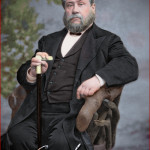wrote:
The Puritans [were] burning and shining lights. When cast out by the black Bartholomew Act, and driven from their respective charges to preach in barns and fields, in the highways and hedges, they in a special manner wrote and preached as men having authority. Though dead, by their writings they yet speak: a peculiar unction attends them to this very hour (Works, 4:306-307).
Whitefield went on to predict that Puritan writings would continue to be resurrected until the end of time due to their scriptural spirituality. Today, we are living in such a time. Interest in Puritan books has seldom been more intense. In the last fifty years, 150 Puritan authors and nearly 700 Puritan titles have been brought back into print.
Puritan literature has so multiplied that few book lovers can afford to purchase all that is being published. What books should you buy? Where can you find a brief summary of each Puritan work and a brief biography of each author so that you can have a glimpse of who is behind all these books?
These kinds of questions motivated Randall Pederson and me to write Meet the Puritans: With a Guide to Modern Reprints. In this book, we tell the life stories of the 150 Puritan writers who have been reprinted in the past fifty years. We have also included concise reviews of the 700 newly published Puritan titles plus bibliographical information on each book. And we have noted the books that we consider most critical to have in a personal library.
We had four goals for writing this book: first, that these godly Puritan writers will serve as mentors for our own lives. That is why we have told the stories of the Puritans on a layperson’s level and kept them short. You could read one life story each day during your devotional time. Second, we trust that when you read these reviews of Puritan writings, you will be motivated to read a number of these books, each of which should help you grow deeper in your walk with the Lord. Third, we hope this book will serve as a guide for you to purchase books for your families and friends, to help them grow in faith. Finally, for those of you who are already readers of Puritan literature, this guide is designed to direct you to further study and to introduce you to lesser-known Puritans that you may be unaware of.
Definition of Puritanism
Just who were the Puritan writers? They were not only the two thousand ministers who were ejected from the Church of England by the Act of Uniformity in 1662, but also those ministers in England and North America, from the sixteenth century through the early eighteenth century, who worked to reform and purify the church and to lead people toward godly living consistent with the Reformed doctrines of grace.
Puritanism grew out of three needs: (1) the need for biblical preaching and the teaching of sound Reformed doctrine; (2) the need for biblical, personal piety that stressed the work of the Holy Spirit in the faith and life of the believer; and (3) the need to restore biblical simplicity in liturgy, vestments, and church government, so that a well-ordered church life would promote the worship of the triune God as prescribed in His Word (The Genius of Puritanism, 11ff.). Continue reading

